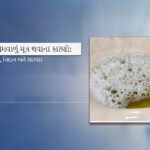Testicular pain is a discomfort or pain felt in one or both testicles, and it can be caused by a variety of conditions. Although it is not a common condition, statistics show that testicular pain affects about 1 in 4 men at some point in their lives. Testicular pain can range from mild discomfort to severe pain, and it can be caused by a variety of conditions such as testicular torsion, epididymitis, orchitis, varicocele, trauma, and hernia. It’s important to note that testicular pain should not be ignored and immediate medical attention should be sought. In this article, we will take a closer look at the causes, symptoms, and treatment options for testicular pain.
Table of Contents
What should you do if your testicular pain is caused by trauma?
Testicular pain can be caused by a variety of factors, one of which is trauma. Trauma to the testicles can happen due to a variety of reasons such as sports injury, accident, or physical assault. The testicles are located outside of the body and are not well protected, making them more susceptible to injury.
The etiology of testicular pain caused by trauma is quite simple; it is caused by the direct impact of an external force on the testicles. This can result in a bruise, contusion, or even a fracture of the testicles. The pain caused by trauma can be sharp and severe, and can also be accompanied by swelling and tenderness in the affected area. In some cases, trauma to the testicles can also cause a hematoma, which is a collection of blood outside of the blood vessels. It is important to note that testicular pain caused by trauma can be serious and can have long-term consequences if left untreated. In some cases, trauma to the testicles can lead to infertility or even the loss of the affected testicle. Therefore, it is crucial to seek medical attention if you suspect that your testicular pain is caused by trauma.
The treatment for testicular pain caused by trauma can vary depending on the severity of the injury. In some cases, rest and ice can be enough to alleviate the pain and promote healing. In more severe cases, surgery may be necessary to repair the damage. In addition, your doctor may also prescribe medication to help manage the pain.
Other testicular pain causes include
Orchitis
Orchitis is an inflammation of the testicle and it is one of the common causes of testicular pain. The etiology of orchitis is typically viral, specifically mumps in post-pubertal males, but it can also be caused by bacterial infections, such as those caused by E. coli or streptococcus. Symptoms of orchitis include sudden onset of pain and swelling in one or both testicles, along with fever, nausea, and vomiting. The affected testicle may also feel warm to the touch and be tender to palpation. It is important to note that orchitis can lead to serious complications such as testicular atrophy or infertility if left untreated. Therefore, it is crucial to seek medical attention if you suspect that your testicular pain is caused by orchitis.
Epididymitis
Epididymitis is an inflammation of the epididymis, a small tube located behind the testicle that carries sperm. It is a common cause of testicular pain and discomfort. The inflammation can be caused by a bacterial or viral infection or can be the result of a condition such as a urinary tract infection or sexually transmitted infection. Symptoms of epididymitis include pain and tenderness in the affected testicle, as well as swelling, redness, and warmth in the affected area. In some cases, there may also be a fever or flu-like symptoms. It is important to seek medical attention if you suspect that you have epididymitis as it may lead to long-term complications if left untreated. The treatment for epididymitis typically includes antibiotics and anti-inflammatory medication.
Varicocele
Varicocele is a condition characterized by the dilation of the veins in the pampiniform plexus within the scrotum. This condition can lead to a feeling of heaviness or aching in the scrotum, as well as a visible mass in the scrotum. Varicocele is a common cause of testicular pain, as the dilation of the veins can lead to increased pressure on the testicles and surrounding structures. This can cause discomfort and pain in the affected testicle. It is important to note that varicocele is also a risk factor for infertility, and in some cases, it may require surgical intervention to alleviate symptoms and prevent further complications.
Signs and Symptoms: Understanding the Indicators of Testicular Pain
- Aching or discomfort in one or both testicles: This can range from mild discomfort to severe pain and can be felt as a dull ache or a sharp pain.
- Swelling of the testicles: This can be caused by inflammation or injury to the testicles and can be accompanied by tenderness and redness.
- Testicular lump: In some cases, testicular pain can be caused by a lump or mass on one of the testicles.
- Scrotal pain: Some men may experience pain in the scrotum, which is the sac that contains the testicles.
- Nausea or vomiting: In some cases, testicular pain can be accompanied by nausea or vomiting.
- Lower abdominal pain: Testicular pain can also be accompanied by lower abdominal pain in some cases.
- Groin pain: Testicular pain can also radiate to the groin area, causing discomfort or pain.
- Infertility: In some cases, testicular pain can be a sign of underlying infertility issues.
- Fertility problems: Testicular pain can be associated with fertility problems, such as a low sperm count.
- Testicles that are sore to the touch: Painful testicles may be sensitive to touch and may be swollen, red, or warm to the touch.
It’s important to note that these symptoms may vary depending on the cause of the testicular pain. In some cases, men may not experience any symptoms at all
Conclusion
Testicular pain is a common condition that can have a variety of causes, from minor injuries to serious underlying health issues. It is important to seek medical attention immediately if you experience testicular pain, as it can be a symptom of a serious condition that requires prompt treatment. To prevent testicular pain, it is important to practice good hygiene, maintain a healthy diet and exercise regularly, and avoid activities that put stress on the testicles. Wearing properly fitting athletic cups during sports activities can also help to protect the testicles. Remember, if you experience testicular pain; seek medical attention right away to rule out any serious underlying conditions. Early diagnosis and treatment can help prevent long-term complications and ensure that you receive the best care possible. If you are in search of the most accurate diagnosis and effective treatment plan for your testicular pain, contact us at Dr. Dushyant Pawar



